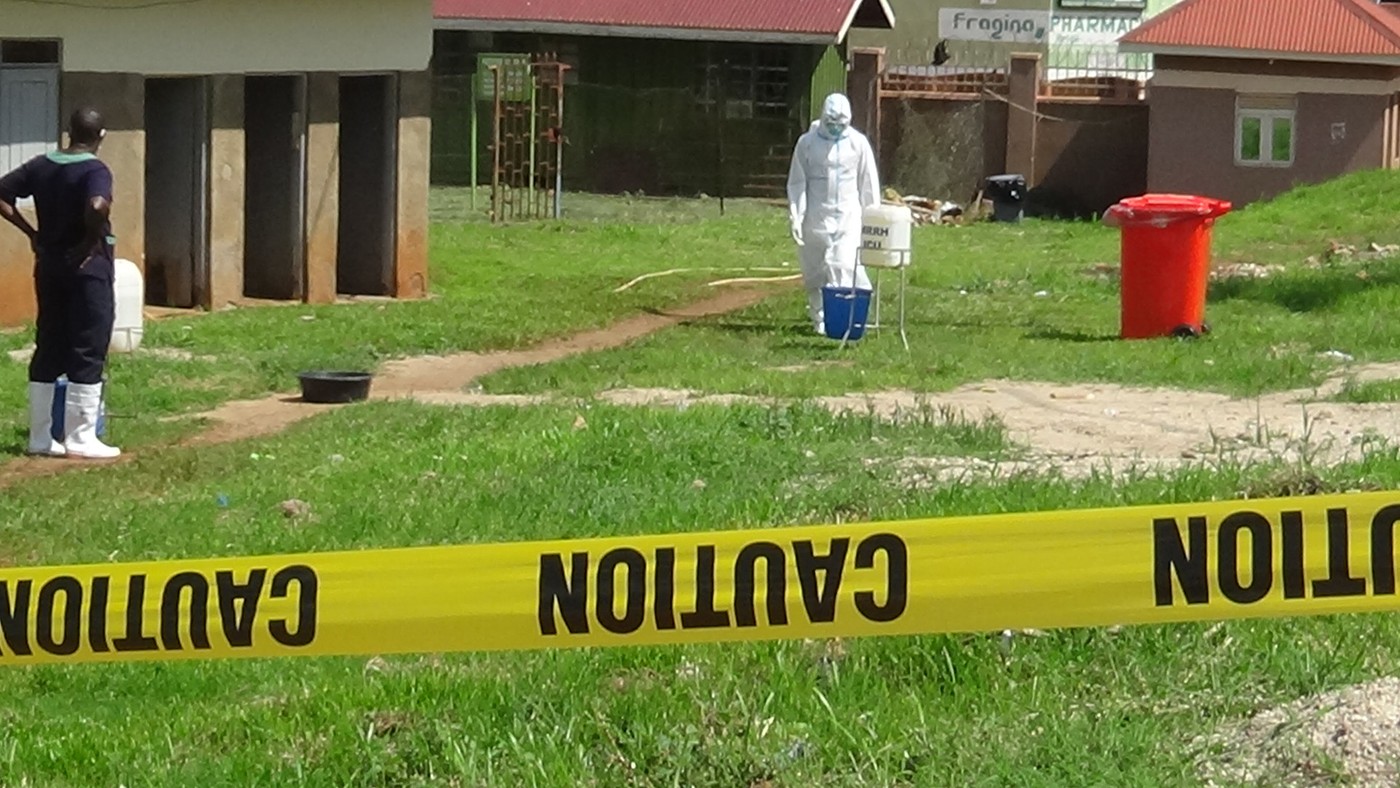Uganda’s Ebola outbreak causes international alarm
Infected patients reportedly escaping hospitals as cases rise

A free daily email with the biggest news stories of the day – and the best features from TheWeek.com
You are now subscribed
Your newsletter sign-up was successful
The president of Uganda has rejected calls for a lockdown, despite an outbreak of a highly contagious strain of Ebola.
So far six people have died from the 31 cases that have been confirmed, but “it is feared that there could be many more”, said the BBC.
President Yoweri Museveni ruled out quarantine-type restrictions. “Ebola is not spread like corona[virus]”, he said, as it is not an airborne disease. It spreads, said the BBC, “by direct contact with bodily fluids and contaminated environments”.
The Week
Escape your echo chamber. Get the facts behind the news, plus analysis from multiple perspectives.

Sign up for The Week's Free Newsletters
From our morning news briefing to a weekly Good News Newsletter, get the best of The Week delivered directly to your inbox.
From our morning news briefing to a weekly Good News Newsletter, get the best of The Week delivered directly to your inbox.
Museveni is instead focusing on contact tracing and the opening of a 51-bed treatment facility in Mubende, the epicentre of the outbreak, with a second facility due to be set up soon.
Two mobile laboratories would also be opened, the president said, so that people would not have to travel for tests and risk spreading the virus.
But the cases of the Ebola strain, for which there is no life-saving vaccine, are raising “international alarm”, said The Telegraph.
Medics have gone on strike because of a lack of adequate personal protective equipment such as gloves and masks, and infected patients are reportedly escaping from medical facilities. A medical student reportedly died after caring for a baby infected with Ebola.
A free daily email with the biggest news stories of the day – and the best features from TheWeek.com
Meanwhile, a “multipronged international effort” has begun to launch trials of experimental Ebola vaccines in Uganda, reported Science.
Nancy Sullivan, from the National Institute of Allergy and Infectious Diseases, told the publication that more needs to be done. “All of the pandemic preparedness we’re doing isn’t enough,” she said.
Ebola is a severe acute viral illness. Early symptoms are similar to flu and malaria and include the sudden onset of fever, intense weakness, muscle pain, diarrhoea, vomiting and both internal and external bleeding. Most patients killed by the disease die from blood loss, organ failure or shock.
The World Health Organization has warned that the “risk of international spread cannot be ruled out due to the active cross-border population movement”.
Chas Newkey-Burden has been part of The Week Digital team for more than a decade and a journalist for 25 years, starting out on the irreverent football weekly 90 Minutes, before moving to lifestyle magazines Loaded and Attitude. He was a columnist for The Big Issue and landed a world exclusive with David Beckham that became the weekly magazine’s bestselling issue. He now writes regularly for The Guardian, The Telegraph, The Independent, Metro, FourFourTwo and the i new site. He is also the author of a number of non-fiction books.
-
 The 8 best TV shows of the 1960s
The 8 best TV shows of the 1960sThe standout shows of this decade take viewers from outer space to the Wild West
-
 Microdramas are booming
Microdramas are boomingUnder the radar Scroll to watch a whole movie
-
 The Olympic timekeepers keeping the Games on track
The Olympic timekeepers keeping the Games on trackUnder the Radar Swiss watchmaking giant Omega has been at the finish line of every Olympic Games for nearly 100 years
-
 Epstein files topple law CEO, roil UK government
Epstein files topple law CEO, roil UK governmentSpeed Read Peter Mandelson, Britain’s former ambassador to the US, is caught up in the scandal
-
 Iran and US prepare to meet after skirmishes
Iran and US prepare to meet after skirmishesSpeed Read The incident comes amid heightened tensions in the Middle East
-
 Israel retrieves final hostage’s body from Gaza
Israel retrieves final hostage’s body from GazaSpeed Read The 24-year-old police officer was killed during the initial Hamas attack
-
 China’s Xi targets top general in growing purge
China’s Xi targets top general in growing purgeSpeed Read Zhang Youxia is being investigated over ‘grave violations’ of the law
-
 Panama and Canada are negotiating over a crucial copper mine
Panama and Canada are negotiating over a crucial copper mineIn the Spotlight Panama is set to make a final decision on the mine this summer
-
 Why Greenland’s natural resources are nearly impossible to mine
Why Greenland’s natural resources are nearly impossible to mineThe Explainer The country’s natural landscape makes the task extremely difficult
-
 Iran cuts internet as protests escalate
Iran cuts internet as protests escalateSpeed Reada Government buildings across the country have been set on fire
-
 US nabs ‘shadow’ tanker claimed by Russia
US nabs ‘shadow’ tanker claimed by RussiaSpeed Read The ship was one of two vessels seized by the US military